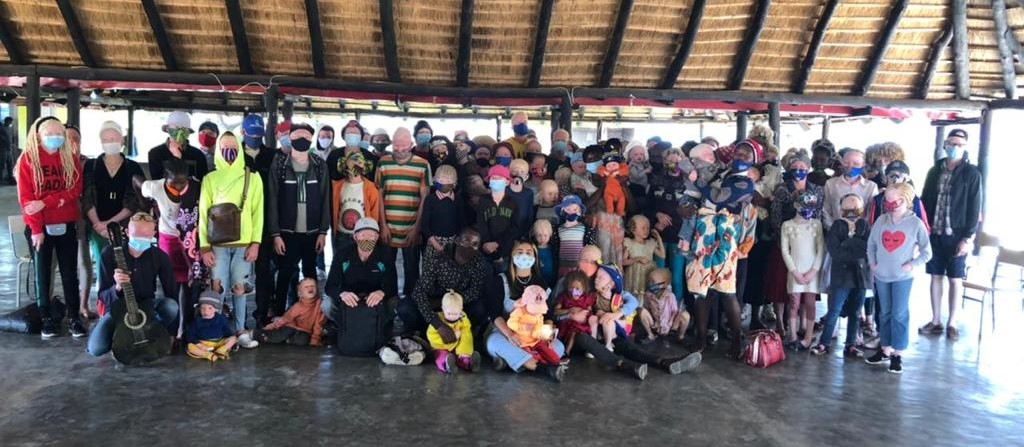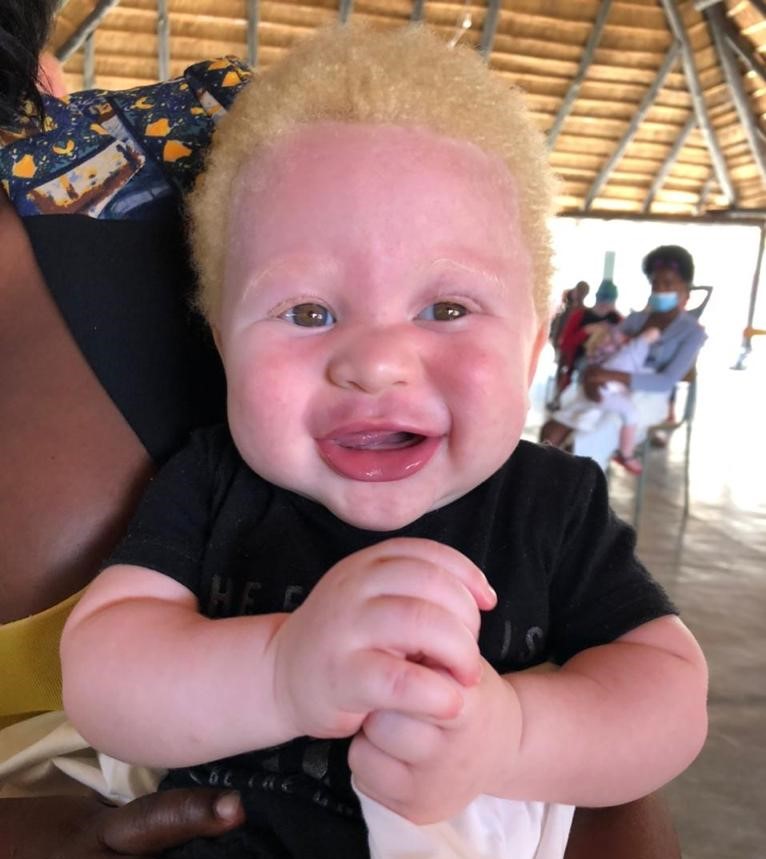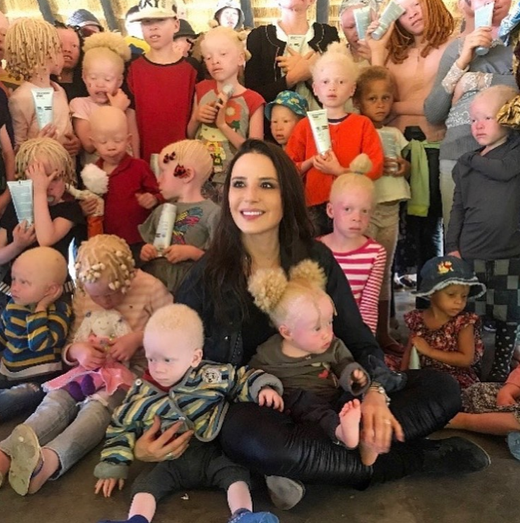There is no official, reliable data on albinism in Angola. My experience in Bié has shown that the number of people with albinism living in the region is quite high – I have seen 75 people in a single week – and most of them suffer from a total lack of access to health care and sunscreen.
This is how Brazilian dermatologist Carolina Marçon describes the situation she encountered on a daily basis in her work with albinism in Angola. A country where the life expectancy of people with albinism (PWA) is among the lowest in the world, around 30 years, and skin cancer is one of the main causes of death.
A difficult situation that is undoubtedly aggravated in rural areas, where children with albinism start working in the fields when they are only four years old and often suffer from severe sunburn. In addition to suffering enormous discrimination and countless beliefs that consider people with albinism to be inferior or at a disadvantage.
We continue crossing borders
This serious reality about people with albinism in Angola and the commitment we have from Beyond Suncare to fight for their rights and continue crossing borders, have led us to start a new project in the Angolan. A project that we started in April this year serving more than 250 people with albinism in two weeks, and that focuses on the distribution of customized sunscreens, awareness and education of beneficiaries and community, as well as the training of local health professionals, responsible for providing specialized care to this needy population. In this new illusion, we will combine the experience and efforts of Beyond Suncare with the team led by Dr. Carolina Marçon; and the support of the International League of Dermatological Societies (ILDS), the Isdin Laboratory and the Aldeia Nissi, association, who have been carrying out support work in the region for several years.
All this without losing sight of the main objective: to improve the quality of life and reduce the prevalence of skin cancer among PCAs in the province of Bié (central Angola) through access to high quality sun protection, medical care, psychological support and the promotion of social inclusion.
We were able to share a few minutes chatting with the project manager, Dr. Carolina Marçon, about her experience in Bié, the needs of people with albinism in the region and the socio-health care they receive and this is what she told us:
- How is your personal experience as a dermatologist in the country?
My experience as a dermatologist in the country was extremely painful and shocking. Almost 100% of the patients I saw had no access to health care or sun protection. Many children had severe burns and I treated young people with advanced tumors. In addition, there is a total lack of knowledge of the condition in different areas of society. PWA and their families, as well as educators, health professionals and the population in general, lack health education about this condition. To which we must add that beliefs and myths are superimposed on reality, making people with albinism suffer even more, especially, within their own families. Very sad indeed.
- What are the most essential needs?
The needs of the people living in the region are many and diverse. The most basic and widespread are food, education and access to health care. If we take into account the specific situation of the PWA, I believe that the main needs would be access to healthcare (dermatological and ophthalmological, mainly), access to preventive measures against involuntary exposure to the sun (clothing, sunscreen, glasses) and guidance on the disease and the necessary care.
- Is there any specific legislation that protects people with albinism?
here are different groups of PCAs in Angola, which have been fighting for years, through their leaders, for the implementation of public policies that guarantee this population’s access to health and resources, as well as social inclusion. However, as far as I know, nothing has been done so far. In addition, there is very little attention or knowledge on the part of the local government about the needs and situation of the PCAs living in the region.
My experience there has shown that there is no specific attention for this population, nor are there specialists or health professionals prepared to address this genetic condition..
Dra. Carolina Marçon
Dermatóloga, directora médica del programa en Bié (Angola).




